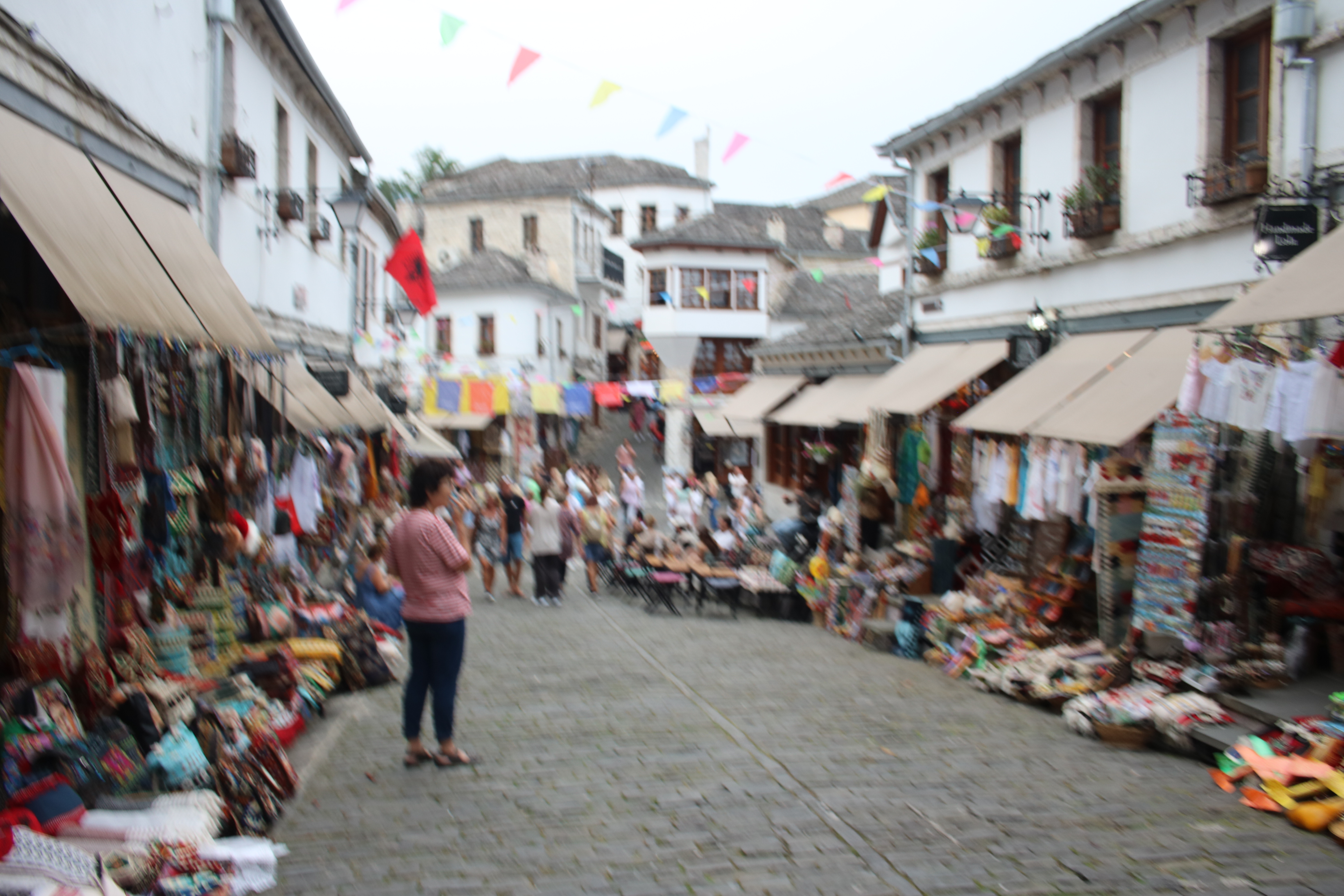Now is a good time for making resolutions. While I am not a conformist to New Year resolution-making theory, this year, I will do just that – make a travel resolution that is not aimed at bucket-lists. This time around, my resolutions are all about making the right travel choices that will in some way benefit the travel community, people I meet or the destination I visit. Tall order? Since I am looking at a full travel calendar for 2020, I think it is necessary. Some of my travels this year will take me through developing countries and I’d to slip into the condescending role of ‘I am better than you’ – as, unfortunately, Indian-travelers are apt to.
While I am on the subject, my resolutions also include kicking few other common Indian habits (that are quite deplorable) I inherently carry around with me and despite the varying perspectives we have about travel, there are few habits I’ve picked up from some travelers I met or was told about.
What are they?
Table of Contents
Habits I kicked – and habits we should all kick
My travels have always been eye openers. Constant interaction with people from all walks of life, race, country, culture and creed has made me a little more aware. But it didn’t happen overnight. Being aware was the result of conscious decisions to detox myself of undesirable habits that came in the way of leading a satisfactory period of travel.
1. The first habit I kicked out was – being overly cautious.
When I started traveling at a very impressionable age of 17, I was told never to eat anything offered by strangers, not to trust random strangers and be alert (and stiff) all the time, so much so that in the beginning I spent more time practicing what I was told that I never enjoyed my trips. Fortunately that phase passed and today I confidently walk into any stranger’s house, demand a meal or help and just be a trusting human. It has worked. However I don’t seem to be able to convince my fellow Indian travelers to do the same. Being cautious is great; being overly cautious takes the essence of travel and the very thing it represents. Show people you trust, they’ll trust you in return. Of course, employ some common sense too – it helps!
2. Overly curious
In other words, being nosey is a definite NO NO. An average Indian is a question bank. Our questions get more personal as the meeting progresses, and sometimes those questions border on insult, social hierarchy and snootiness. We are known to “gauge” the other constantly by their culture, tradition and (worst of all) religion. Curiosity is the first habit I kicked – after having been subject to a 100 question routine that tested my patience and resolve to remain patient.

Are you married? What is your salary? These are two questions I have sworn never to ask (unless it a good looking man without a ring, of course) but which is what an Indian traveler will first ask without batting an eyelid. I also refrain from cross-questioning, challenging the answers and accept any info given to me. If someone told me “I am a space scientist,” I accept that without questioning why he/she is panhandling under the bridge. It is none of my business to know why people lie. From experience I know people will lie or exaggerate the truth, especially tourists and it is not my moral duty to make them see their fault.
3. End Social Media dependency
Okay, this might not be the complete truth, but there is a reason to it. Hear me out on this one. I do document my travel through social media such as Facebook, Instagram, Twitter and suchlike, but I am aware that I am missing reality when I am online. So, I have taken it down a notch. I try to upload pictures only when I am back at the hotel. After all, much as I like to show off my fabulous pictures, it is really not my responsibility to remain glued to social media just so that I can prove a point, perhaps? I’d rather live the moment, than “post” the moment. I have walked into people with their heads bent over the phone outside the very sights they have come to see… no, that head-bent over the phone person will NOT be me. Never again.
4. Stating the obvious…and very loudly
Few countries are quiet and laidback, in complete contrast to a boisterous India. To us, talking loudly or public merry-making is a norm and comforting (or even cheerful) so we fail to understand that loud chatter in public, trains or buses is very off-putting. In fact, certain places, like churches, art galleries, zoos or religious monuments demand a silent spectator and we need to understand that there is no need to shout out the obvious.
“What a beautiful painting…see see”
“Look, that lion is so big, look beta, see that elephant.”
“That sculpture is so amazing.”
“Take photo, take photo…come everyone come.”
I have trained myself to appreciate everything silently or look away discreetly when I witness this.
5. Smoking and cursing
I am a non-smoker but I know of friends who kicked the habit of smoking for the simple reason that it is becoming increasingly difficult to find a place to smoke in public. This I approve of and believe should become the norm. While this is not a habit I can kick, I’d really like to see more of this happen.
 Cursing: This is the tricky one. Everyone curses. But we Indians are particularly good at using swear words (given the number of languages we have). We come from a country where you are comfortable swearing, but rest of the world may not agree with you. Fortunately countries in Middle East, as an example have a law against it. Cursing makes you look rude and/or uneducated. You also may be around a lot of children whose parents will not appreciate the colorful language, especially in more confined areas like airplanes. Traveling gives you a great opportunity to meet people from all different cultures, don’t turn people off from your amazing self because of four letter words. I learnt my lesson long ago when a German guy I was dating said to me plainly and simply (after I used a choice swear word) – “That doesn’t suit you at all and it is quite unnecessary.
Cursing: This is the tricky one. Everyone curses. But we Indians are particularly good at using swear words (given the number of languages we have). We come from a country where you are comfortable swearing, but rest of the world may not agree with you. Fortunately countries in Middle East, as an example have a law against it. Cursing makes you look rude and/or uneducated. You also may be around a lot of children whose parents will not appreciate the colorful language, especially in more confined areas like airplanes. Traveling gives you a great opportunity to meet people from all different cultures, don’t turn people off from your amazing self because of four letter words. I learnt my lesson long ago when a German guy I was dating said to me plainly and simply (after I used a choice swear word) – “That doesn’t suit you at all and it is quite unnecessary.
That logic stuck. Cursing doesn’t improve the situation, doesn’t add value to any conversation and makes you appear uncultured. As a tourist I am the representation of my country overseas, so it is my duty to maintain that face.
Educating yourself is the key
How do you when and how to kick the bad habits? Simple. Educate yourself before you travel. Look up any cultural norms you might need to know. For example, if you visit America, make sure you tip when you go out to eat. If you visit China or Japan, it’s rude to stick your chopsticks in your bowl of rice. In the Middle Eastern countries public displays of affection are illegal and can be harshly punished. Learn the norms of greeting people, especially women. There are rules about taking pictures – especially of babies and women and remember being a tourist doesn’t mean you can treat others as subjects for your Instagram pictures without their permission. Also, be careful of any hand gestures you make when you’re abroad. Something that is okay in your country might be an insult in another!
There is nothing worse than being the clueless foreigner that is making cringe-worthy mistakes that could have been easily avoided by some early preparation.
Five typically annoying Indian habits the world hates
Queue Jumping: Yes, we know you have travelled a long way and are in a hurry to get to someplace soon – but it does not justify cutting queues to get ahead of others. This typical Indian habit is a curse the world is better without.
Loud, raucous and rude: We get it, you’re traveling and want to do as much stuff as possible, and there is only so much time. However, you don’t need to be rude about it. It is so annoying when guests come into an establishment and demand to be taken care of first, or when they get angry that they have to be in a line for a little while. Each guest is important. However, that doesn’t mean that you have the right to demand better treatment than other people.
Standing up even before plane has landed: It is funny and shameful at the same time. Hey tourists, where do you think you are going even before the plane has come to a standstill?
Being messy: So, you want to relax – understood. You don’t want to worry about making your bed, or preparing dinner and having to worry about the dishes. However, just because you are on vacation, it doesn’t give you the right to be a slob. Place yourself in the other people’s shoes; would you be annoyed with the mess a group of people left behind? Then that probably means you should tidy up a bit.
Assuming your language is universal: Your language may be the most popular languages in the world, but that still doesn’t mean that everyone in the world can speak it. So don’t assume that everyone must know English. Also don’t assume that speaking louder would make a non-English (or any other) speaker understand. We’ve seen some incidents of people trying to insist that by speaking louder, people will suddenly understand. Don’t be that person, almost everyone has a smartphone these days, and there are plenty of translation apps. Just making an effort to speak the local language will endear you to the locals.




